bodycameras
Latest
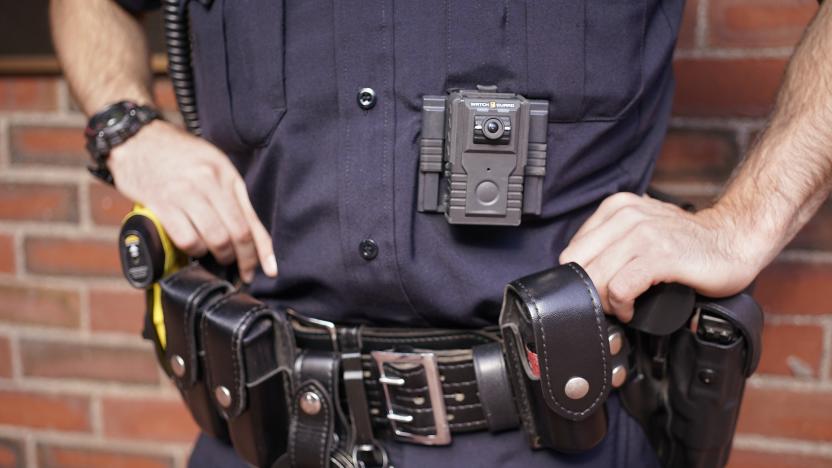
Police reform bill proposes mandatory body cameras for federal officers
Congressional Democrats have unveiled a sweeping police reform bill with the aim of overhauling law enforcement in the US.
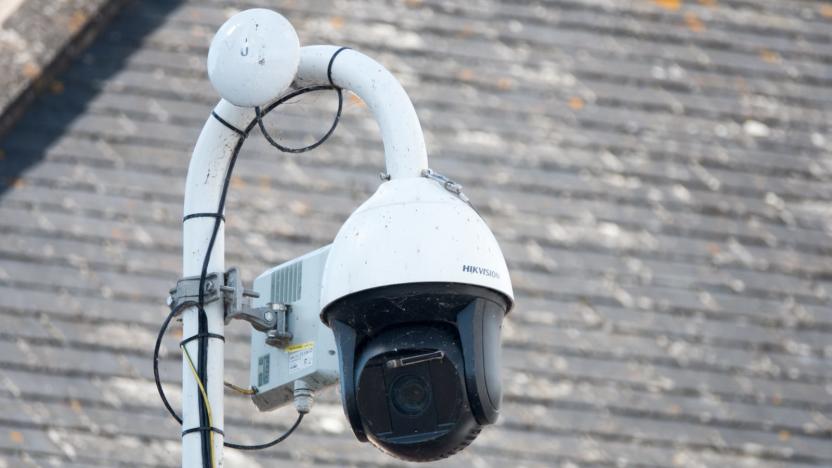
The EFF’s VR experience helps users spot surveillance devices
With surveillance technology becoming ever more ubiquitous, it would be useful to know where to look for it. At least that's the thinking behind the Electronic Frontier Foundation's Spot the Surveillance VR experience. It puts users in a virtual neighborhood as a young resident navigates an encounter with police, and it challenges users to spot all of the various surveillance technology that surrounds them. That includes devices like body cameras, automated license plate readers, drones and biometric devices.
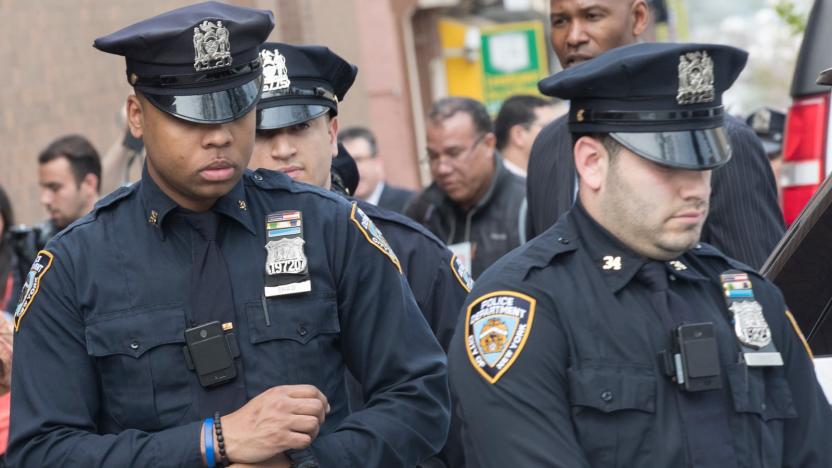
NYPD pulls 2,990 body cameras after one catches fire
The NYPD's plan to outfit every officer with body cameras has run into trouble. The department has pulled about 2,990 Vievu LE-5 cameras across the city after one officer's camera caught fire near a Staten Island precinct. There's a "possible product defect" with the LE-5, the NYPD said in a statement, and it was removing existing models out of an "abundance of caution." Most of the force's 15,500 cameras (including LE-4 models) aren't affected.
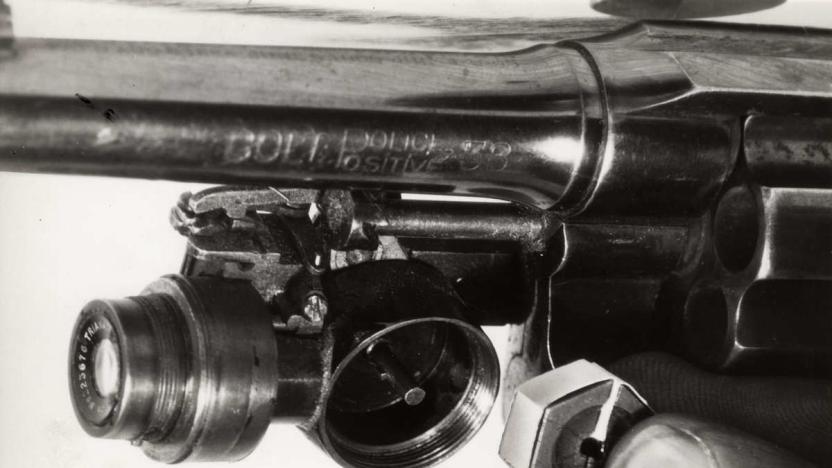
When body cams had bullets
Just as GoPros have given us a whole new perspective on everything from extreme sports to animal behavior, so have body-worn cameras offered new insights into policing. Law enforcement agencies around the world now use body cams to record the activities of officers in the field, though they've only become commonplace in the last few years. But the idea of documenting the volatile situations officers can find themselves in -- providing both evidence against offenders and holding police accountable for their actions -- is much, much older. The first attempts were very different from the body cams of today, however, as releasing the shutter required pulling the trigger of the gun the camera was attached to.

Security flaws could open body cameras up to hacks
At Def Con this weekend, Josh Mitchell, a cybersecurity consultant with Nuix, showed how various models of body cameras can be hacked, tracked and manipulated. Mitchell looked at devices produced by five companies -- Vievu, Patrol Eyes, Fire Cam, Digital Ally and CeeSc -- and found that they all had major security flaws, Wired reports. In four of the models, the flaws could allow an attacker to download footage, edit it and upload it again without evidence of any of those changes having occurred.

Study says body cameras don't always change police behavior
In theory, body cameras are supposed to not only catch police abuses of power, but deter them: officers will be on their best behavior knowing that they could be hauled in. As Washington, DC researchers have learned, though, that isn't guaranteed. They've published a study showing that body cameras didn't significantly affect officers' use of force or the number of civilian complaints in either direction. While there were actually 74 more uses of force per 1,000 officers when body cams were present, that's roughly consistent with a typical range of differences when the equipment comes into play. The changes could just easily be pinned on variances in crime rates, in other words.

London police issue head-mounted cameras to armed officers
London's Metropolitan Police Service (MPS) will soon issue body-worn video cameras to armed officers. Members of the city's Firearms Command will be required to wear them on their caps or ballistic helmets in the field. The placement differs to regular police officers, who wear them on their shirt or jacket, to prevent obscured recordings while raising or firing a weapon. It's hoped the new deployment will make officers more transparent and accountable, improving public trust in the process. Cameras could also serve as a deterrent both for officers considering misconduct and members of the public on the cusp of breaking the law.

UK trials body cameras for staff in mental health wards
An early trial has found that staff-worn body cameras can reduce confrontation and aggressive behaviour in patients suffering from mental health issues. The pilot ran for three months at Berrywood Hospital, a psychiatric facility in Northampton, England, and was primarily concerned with the "feasibility" of a large-scale bodycam deployment. Researchers wanted to know how comfortable the cameras were, how much training would be required for staff, and how difficult it would be to record and store the resulting data securely. As an aside, the team asked staff to rate the effectiveness of the cameras. The feedback was largely positive.

NYPD details its body camera policy ahead of spring pilot program
After four years of legal wrangling, input from 5,000 active duty officers and 25,000 members of the public, the long-awaited NYPD body camera pilot program is set to begin at the end of the month. On Friday, the department unveiled the rules by which its officers must abide when wearing the new devices and, unlike the 2013 Stop and Frisk case that led to their implementation, these new policy guidelines are surprisingly responsible.

Sensor turns on a cop's body camera when their gun is pulled
Years after high-profile police shootings pressured departments across the country to adopt body cameras, results have been mixed. The increased accountability expected from their rollout has been marred with technical malfunctions or absent footage when officers fail to turn on their devices. Stun gun maker TASER wants to change this with a simple sensor that automatically turns on body cameras when an officer's gun leaves its holster.
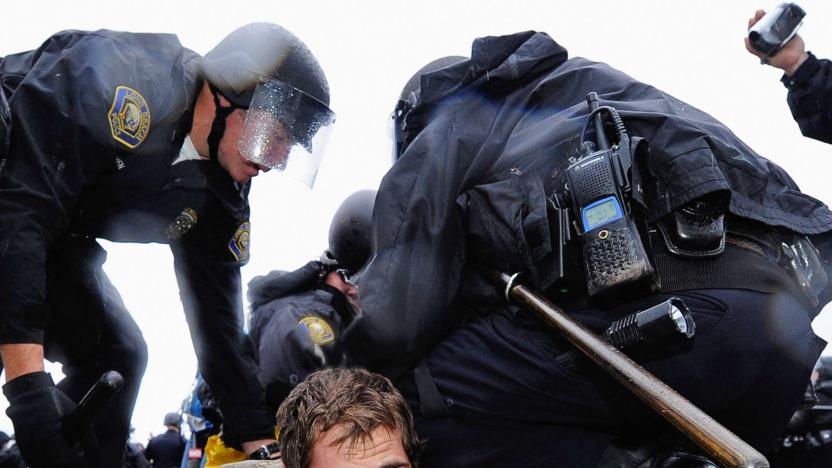
SDPD finds that body cameras reduce misconduct and force complaints
According to an internal report released to the public this week, the San Diego Police Department has seen a significant drop in allegations against officers for both misconduct and overall use-of-force in the three years since the department adopted mandatory body-worn cameras (BWCs).

Taser bought two computer vision AI companies
Law enforcement agencies across the country are adopting body-worn cameras as a means both of increasing their transparency with the public and generating actionable feedback to improve officer performance. Problem is, all these body cams produce terabytes of data daily, far more than many departments can effectively handle. That's why Taser (yes those guys, they make body cameras too) announced on Thursday that it has acquired a pair of companies that specialize in computer- and machine-vision to create the "Axon AI" group. Together, they'll develop a platform that can efficiently parse this flood of data in real time.

UK schools trial police-style body cameras for teachers
To combat disorderly students, two secondary schools in the UK have started trialling staff-worn body cameras. Teachers will use the equipment to record specific incidents, such as a "perceived threat to a member of staff or pupil," according to Tom Ellis, a lecturer at the University of Portsmouth and a former Home Office researcher. The identity of the schools is, for now, a mystery, to avoid unwanted interference during the trial. The cameras won't be recording at all times either -- similar to the police, it will be up to teachers to decide when to hit the record button. "It's not like a surveillance camera," Ellis stressed.
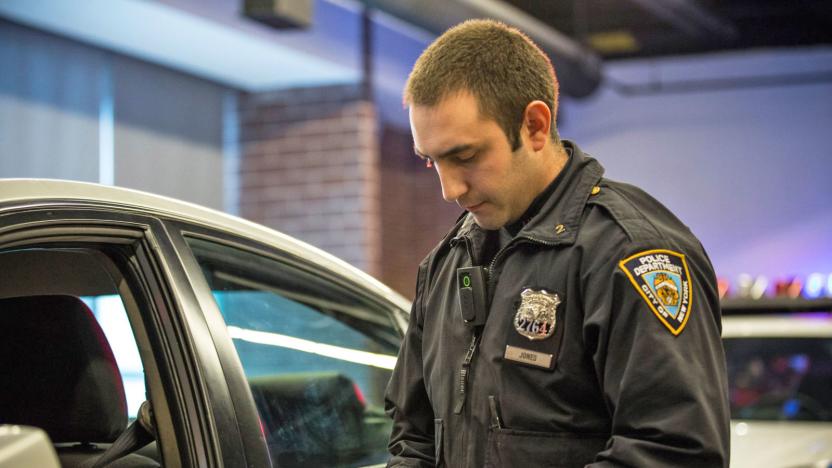
NYPD will equip all officers with body cameras by late 2019
New York City started trying police body cameras years ago, but it hasn't had a formal agreement to roll them out across the entire force. It's not for lack of trying, though -- the city and the officers' union have been locked in contract negotiations for ages. An agreement is finally in place, however. As part of a new contract, the NYPD will equip every officer with a body camera by the end of 2019. When there are over 34,000 officers patrolling the streets, this could easily be one of the most ambitious body camera projects to date.

Feds investigate police body cam footage in New Mexico
The US Department of Justice has launched a criminal investigation into claims that the Albuquerque Police Department edited and deleted footage from officers' body cameras in an effort to remove scenes that might damage the department's reputation. New Mexico In Depth reports federal officials have received "several requests" for a criminal investigation, according to a spokesperson for the US Attorney's Office in Albuquerque.
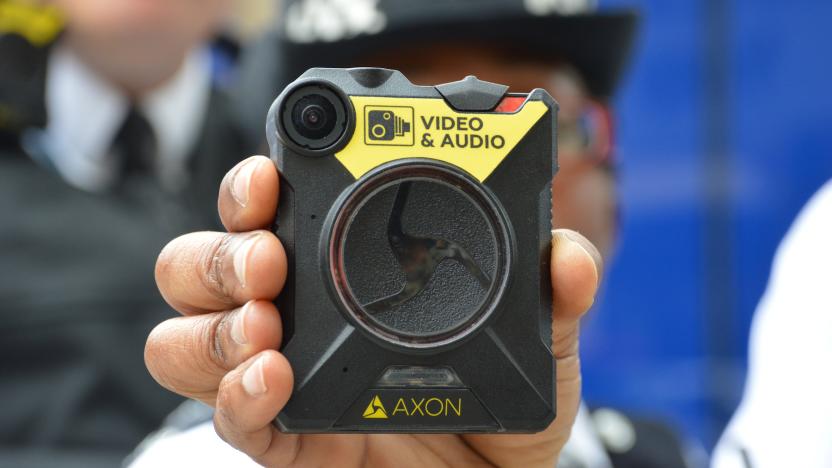
Body cameras will be given to 'over 22,000' London police
To help keep the peace, more than 22,000 London police officers will soon be given body cameras. The roll-out begins today -- six months later than former mayor Boris Johnson had anticipated. The new hardware, supplied by Taser, won't be recording around the clock; instead, officers will need to hit the shutter manually and notify the public "as soon as practical." A red light and beeping noise will indicate new recordings. The footage will then be uploaded to a secure server where it can be used as evidence in court. If it's not required, the data will be deleted automatically after 31 days.
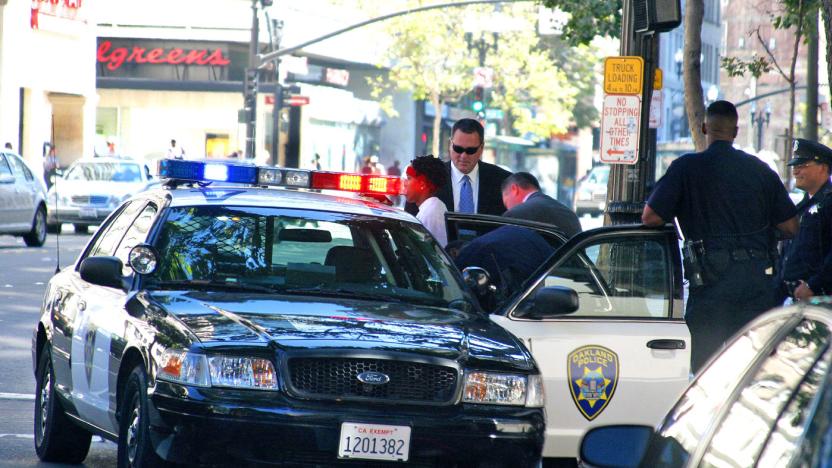
Big data shows racial bias in police behavior
Stanford University just delivered further proof that massive, readily available data sets can solve tricky law enforcement problems. School researchers combing through a mix of 28,119 Oakland Police Department stop reports, officer body camera footage and community surveys have learned that there are "significant" racial biases at play. OPD officers are not only more likely to stop a black person, but far more likely to conduct searches of black people, even though they weren't any more likely to find something incriminating. Officers more frequently handcuffed black people without arresting them, too. And the pattern is the same regardless of the crime rate in a given region.

ICYMI: Cameras on Cops, VR beam onto Enterprise and more
#fivemin-widget-blogsmith-image-467571{display:none;} .cke_show_borders #fivemin-widget-blogsmith-image-467571, #postcontentcontainer #fivemin-widget-blogsmith-image-467571{width:570px;display:block;} try{document.getElementById("fivemin-widget-blogsmith-image-467571").style.display="none";}catch(e){}Today on In Case You Missed It: The Department of Justice just announced it will give $23 million to 32 states to help buy more body cameras for police officers. A virtual reality tour that would create all 42 decks of the Starship Enterprise is being crowdfunded. And an overfunded IndieGoGo campaign for a lamp that is exactly modeled on the moon is still available for your bedtime with tots enjoyment.

DoJ shells out $23 million for the President's body camera pilot program
The Department of Justice announced last May that it would fund a national pilot program for law enforcement body cameras, a plan first put forth by President Obama. On Monday, the DoJ made good on that promise by awarding $23 million in grants to 32 states for the purchase of these devices. Of that total, $19.3 million will go towards actually purchasing the necessary 50,000 cameras, another $2 million is earmarked for training and the remaining $1.9 million will be used to conduct impact studies in Miami, Milwaukee and Phoenix.
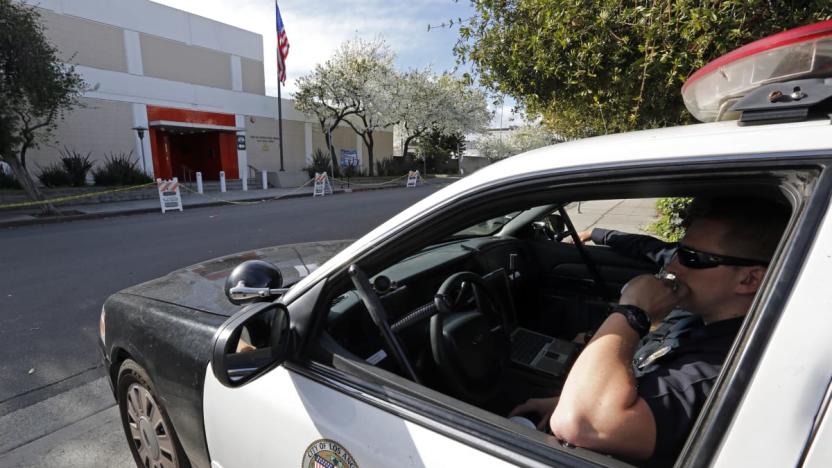
LAPD's body cameras roll out Monday, but footage won't be public
Come Monday the Los Angeles Police Department begins its deployment of body cameras for officers. The initial rollout is limited -- only 860 of the proposed 7,000 cameras will hit the streets at first -- and the SWAT team won't get them until sometime after mid-September, according to The Los Angeles Times. The LAPD "doesn't plan on" making the recordings public unless a criminal or civil court case attached to them, though. The American Civil Liberties Union says that this blanket refusal to make all captured video public means that police departments can cherrypick what footage they do choose to distribute and essentially use it as PR for good deeds while keeping less-than-applause-worthy footage out of the limelight. Of course, one way around that would be setting up a YouTube channel like Seattle did, but that brings about its own set of critics. [Image credit: Associated Press]









